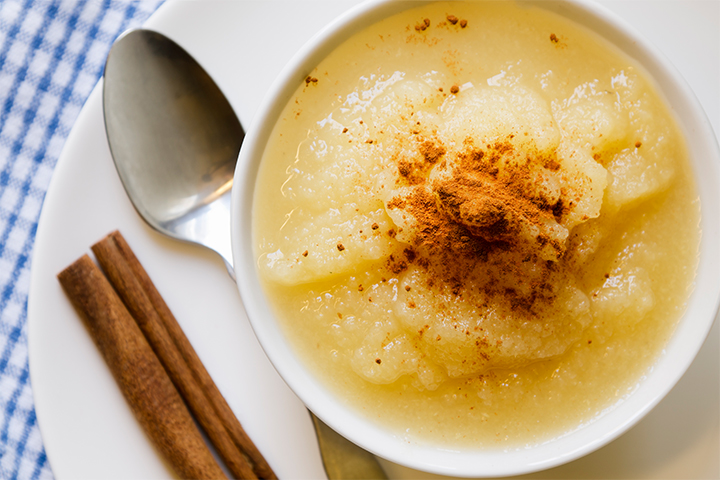Cinnamon is a popular spice derived from the bark of certain tree species. It is widely used in culinary preparations and has also been associated with potential health benefits. However, when it comes to babies, it is essential to exercise caution and consider various factors before introducing cinnamon into their diet or using it for medicinal purposes.

This article explores cinnamon’s potential benefits and risks for babies and provides recommendations for its safe usage.
Benefits of Cinnamon for Babies:
- Antimicrobial Properties: Cinnamon contains compounds with antimicrobial properties, which may help fight against various bacteria, fungi, and viruses. This could be beneficial for babies, especially in preventing common infections.
- Antioxidant Effects: Cinnamon is rich in antioxidants that help neutralize harmful free radicals in the body. Antioxidants support a healthy immune system, particularly for babies with developing immune systems.
- Digestive Aid: Cinnamon has been traditionally used to aid digestion. It may help relieve symptoms such as gas, bloating, and indigestion, which can be common in babies.
- Anti-inflammatory Properties: Some studies suggest that cinnamon possesses anti-inflammatory properties, which could help alleviate symptoms of inflammation-related conditions in babies, such as colic.
Effectiveness of Cinnamon for Hair Growth: Examining the Claims and Evidence
Risks and Considerations:

- Allergic Reactions: Cinnamon can cause allergic reactions in some individuals, including babies, like any other spice. It is recommended to perform an allergy test by introducing a small amount of cinnamon and monitoring the baby for any adverse reactions, such as skin rashes or difficulty breathing.
- Irritation: Cinnamon contains a compound called cinnamaldehyde, which can cause irritation or sensitization of the skin. Be cautious when using cinnamon-infused products, such as oils or creams, on a baby’s delicate skin.
- Digestive Sensitivity: While cinnamon may aid digestion for some individuals, it can also cause digestive discomfort in others. Cinnamon should be introduced to a baby’s diet gradually and in small amounts while closely monitoring for any adverse reactions, such as stomach upset or diarrhea.
- Coumarin Content: Cinnamon naturally contains a compound called coumarin, which can be harmful to the liver in large amounts. Cassia cinnamon, the most commonly available type, has more coumarin content than Ceylon cinnamon. To minimize the risk, it is advisable to opt for Ceylon cinnamon, which has a lower coumarin content, especially if using cinnamon regularly.
Effectiveness of Cinnamon for Hair Growth: Examining the Claims and Evidence
Safe Usage Recommendations:

- Consult with a Pediatrician: Before introducing cinnamon to a baby’s diet or using it for medicinal purposes, it is crucial to consult with a pediatrician. They can provide personalized advice based on the baby’s age, overall health, and specific concerns.
- Start with Small Amounts: When introducing cinnamon to a baby’s diet, start with small amounts and observe for any adverse reactions. It is advisable to wait until the baby is six months old before introducing spices and seasonings.
- Use Ceylon Cinnamon: When purchasing cinnamon, opt for Ceylon cinnamon, which has a lower coumarin content. This can help reduce the risk of liver damage associated with high coumarin intake.
- Be Mindful of Cinnamon Products: If using cinnamon-infused products, such as oils or creams, on a baby’s skin, ensure they are specifically formulated for infants and undergo a patch test on a small area before regular use.
- Balance and Variety: Remember that a baby’s diet should have a balanced and varied range of nutrients. While cinnamon may have potential benefits, it should not replace other essential food groups or become the primary focus of their diet.

Conclusion: Cinnamon can offer potential health benefits for babies, including antimicrobial properties, antioxidant effects, and digestive aid. However, it is crucial to consider the risks and exercise caution when introducing cinnamon to a baby’s diet or using it for medicinal purposes.
Consulting with a pediatrician, starting with small amounts, opting for Ceylon cinnamon, and being mindful of potential allergic reactions or skin irritations are essential to ensure the safe usage of cinnamon for babies. Maintaining a well-rounded and balanced diet should be the primary focus when promoting babies’ health and well-being.
